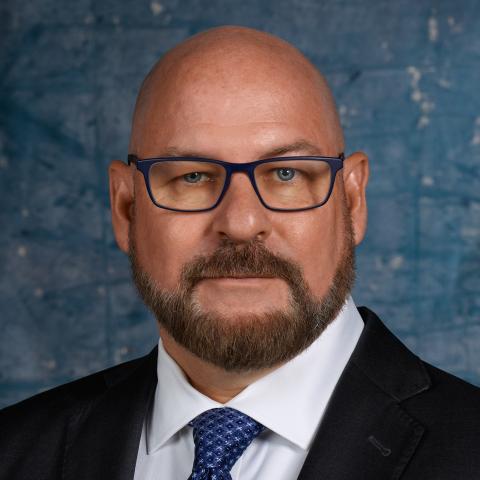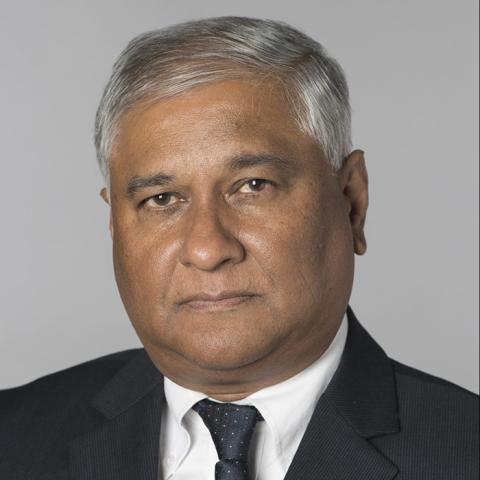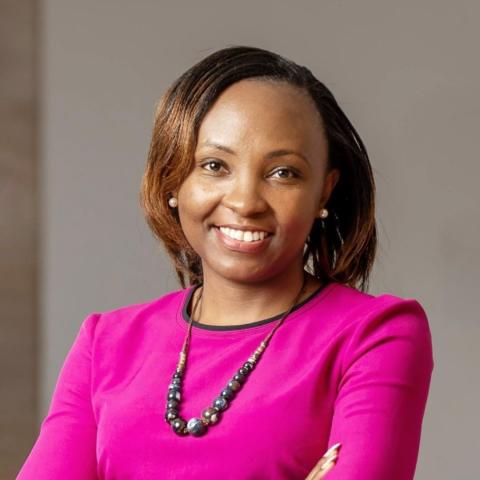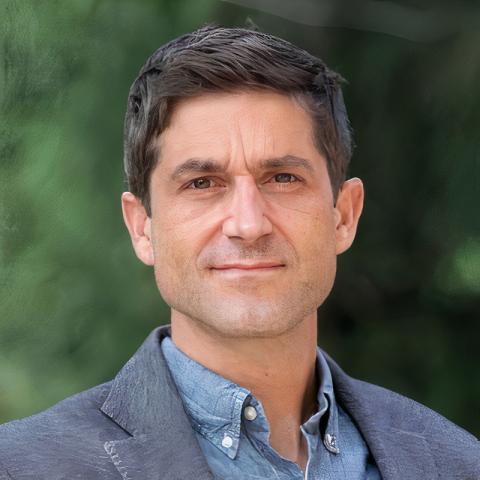2023 UN Climate Change Conference of the Parties (COP28)

Abt was proud to join governments, the private sector, civil society, frontline communities, and others at the 28th Conference of the Parties of the United Nations Framework Convention on Climate Change (COP28) to accelerate climate action.
With the first Global Stocktake of the Paris Agreement goals and first ever day dedicated to health, this COP was a pivotal moment for progress against climate change. Abt sponsored The Climate Registry's Pathway to 1.5 Pavilion, in addition to hosting sessions across the Blue and Green zones and serving as a co-theme lead for the Health and Wellbeing theme at the Resilience Hub.
Here are a few highlights from the conference:
- More than 120 countries signed onto the COP28 Climate and Health Declaration, and we also saw $1 billion in funding committed to addressing climate and health. We were proud to lead discussions on climate resilient health systems, climate information for health, and methane and health. We also shared innovative financing and private sector engagement models we are implementing through the USAID Power Africa’s Health Electrification and Telecommunications Alliance (HETA), advancing critical conversations on health facility electrification.
- Cutting methane emissions continued to be a big focus this year, including commitments from 50 oil and gas companies to cut their emissions to near-zero by 2030, and more than 1 billion in new grant funding mobilized for methane action. We hosted sessions unpacking promising strategies for methane mitigation in the energy sector and agriculture & waste sectors, and also explored the health impacts of methane.
- Countries around the world face different levels of climate risk and have different paths to decarbonization, but all need to increase their ambition, ensure policy cohesion, and turn commitments into action. Through the USAID Comprehensive Action for Climate Change Initiative (CACCI), we convened sessions with USAID and our partners sharing learnings from translating climate commitments into impactful climate policies around the world.
- Climate change poses an existential threat to small island developing states, and it’s essential that we continue to uplift the voices of this community and take action to protect the blue economy that billions depend on. We hosted conversations on this critical topic, bringing together ambassadors and ministers of environment to discuss how to develop ocean-centered climate actions at scale.
See more of our session details and recordings below.
Meet our Experts Who Attended COP28
CACCI at COP28
The USAID Comprehensive Action for Climate Change Initiative (CACCI) shared learnings from across Africa, Latin America and Asia on how to accelerate climate change policy and action at COP28.
Abt is proud to implement CACCI, USAID’s global flagship program to help countries implement their Nationally Determined Contributions (NDCs) and National Adaptation Plans (NAPs).
Learn more about CACCI’s sessions at COP28
Abt Sessions at COP28
Pathways to 1.5°C Pavilion, Blue Zone
Methane Series Part 1: Accelerating Subnational Methane Mitigation in the Agriculture and Municipal Solid Waste Sectors
December 3, 13:00-14:00pm (Dubai, GMT +4) In person and live streamed
Taken together, the agriculture and waste sectors account for over 60 percent of all human-caused anthropogenic methane emissions. In this expert panel, speakers will share reflections on the recent focus on subnational action on methane in the agriculture and waste sectors. The audience will learn about the opportunities for subnational governments to work alongside local stakeholders and the private sector to reduce methane emissions from agriculture, with a focus on livestock and municipal solid waste. Speakers will discuss how subnational governments can leverage and built on enabling frameworks, incentives, and voluntary partnerships needed to realize methane targets. Panelists will provide reflections and calls to action as more subnational commitments and initiatives are announced at COP28.
Presenters:
- Moderator: Eric Reading, Chief Climate Officer, Abt Global
- Jonathan Banks, Global Director - Methane Pollution Prevention, Clean Air Task Force (CATF)
- John Tauzel, Senior Director - Global Agriculture Methane, Environmental Defense Fund (EDF)
- Jeremy Douglas, Director of Partnerships, Delterra
Methane Series Part 2: Accelerating Subnational Methane Mitigation in the Energy Sector
December 3, 15:00 – 16:00 pm (Dubai, GMT +4) In person and live streamed
The energy sector is the second largest source of methane emissions, responsible for 35 percent of emissions. In the oil and gas sector, the leakages, venting, and flaring of natural gas—a fossil fuel made of 70 to 90 percent methane—contribute a significant proportion of energy sector methane emissions, while representing lost resources and revenue. This session will explore how subnational stakeholders are responding and acting on national and international commitments to reduce methane emissions from oil and gas. The session will also include perspectives and real-world implementation in support of methane reduction commitments including those in Nationally Determined Contributions and Methane Action Plans in support of the Global Methane Pledge.
Presenters:
- Moderator: Eric Reading, Chief Climate Officer, Abt Global
- Chair Liane Randolph, California Air Resources Board (CARB)
- Alfredo Miranda-Gonzalez, Deputy Director-International Methane, Clean Air Task Force (CATF)
- TJ Conway, Principal- Climate Intelligence Program, RMI
- Dr. Gbenga Olu Komolafe, Chief Executive, Nigerian Upstream Petroleum Regulatory Commission (NUPRC)
- Dorian Mead, Energy Reform & Reconstruction Advisor, USAID/Washington
Early Warning Systems for Health Decision Making
December 10, 11:00am-12:00pm (Dubai, GMT +4) In person and live streamed
Climate-informed forecasts, disease modelling, early warning, and predictions exist and if scaled and invested in, can effectively guide local health decision-making and public health responses. This session aims to build on the conversations held at the 2023 Climate and Health for Africa Conference, where 15 African nations, U.S. Government entities, the World Health Organization, World Meteorological Organization, and others came together to share research gaps and application needs in early warning for heat and infectious disease across Africa. This session will highlight advancements in early warning systems for health while stimulating discussion between researchers, practitioners, and policy makers to advance climate-based health early warning.
Presenters:
- Moderator: Amanda Quintana, Climate and Health Technical Lead, Abt Global
- Brama Kone, World Health Organization
- Ousmane Ndiaye, Senegal Met Service
- Susan Rumisha, Tanzania NIMRA, Malaria Atlas Project (MAP)
- Kacey Ernst, University of Arizona
- Sari Kovats, London School of Hygiene and Tropical Medicine (LSHTM)
- Ben Zaitchek, AGU
Painting NDCs Blue: Can the Blue Component of NDCs be Doubled in 3 Years?
December 10, 13:00pm-14:00pm (Dubai, GMT +4) In person and live streamed
The potential of the ocean to contribute to global efforts to secure the needed GHG emissions reductions has been massively under-estimated. While steady progress is being made, there is an urgent need to invest in building stronger coalitions and alliances that can help governments to develop ocean centered climate actions and solutions at scale. This session will bring together global leaders to discuss how to double the blue component of their nationally determined contributions (NDCs) within the next three years by COP31.
Presenters:
- Moderator: Satyendra Prasad, Principal Climate Lead, Abt Global
- Coral Pasisi, Director, Climate Change and Sustainability, The Pacific Community
- Peni Suveinakama, Ocean Commissioner, Office of the Pacific
- Sivendra Michael, United Nations Development Programme Pacific Office, Tonga
- Sarah Conway, Director, WTW
The Global Imperative to Address the Plastic-Climate Nexus
December 11, 15:00- 16:00pm (Dubai, GMT +4) In person and live streamed
In recent years, the climate community has increasingly focused on the climate impacts of methane from the waste sector. However, plastic production and waste management is another major contributor to climate change and environmental degradation. This session will open with an overview of the climate and health impacts of the plastic lifecycle. Speakers will share upstream and downstream interventions and solutions to the plastic pollution crisis, with an emphasis on how the global climate community can advocate and engage on this issue.
Presenters:
- Moderator: Amy Rowland, Senior Analyst, Abt Global
- Kaushik Chandrasekhar, Assistant Programme Management Officer, UN Environment Programme (UNEP) India
- Aditi Ramola, Technical Director, International Solid Waste Association (ISWA)
- Russell Armstrong, Senior Director - Campaigns and Advocacy, Hip Hop Caucus
- Dr. Gideon Singer, Senior Geospatial Analyst, Abt Global
Resilience Hub Pavilion, Blue Zone
Building Climate Resilient Health Systems Through Locally Led Action
December 2, 10:30-11:30am (Dubai, GMT +4) In person and livestreamed
Health is increasingly being recognized as crucial for climate resilience. Health systems around the world face climate change challenges and it is critical to build resilience by applying lessons learned from past responses to shocks and stressors. Local and indigenous communities, who are on the frontlines of the climate crisis, hold valuable knowledge, lessons and solutions that must be adequately integrated into policy and transformative action. This session highlights the ways in which community-level activities; from health system strengthening, resilience, locally led adaptation, as well as examples of indigenous and community-led interventions, have created opportunities to improve health systems resilience. The session concludes with key takeaways and the way forward for embedding community-led actions and principles, prioritizing programming principles to build climate resilient health systems, as well as implications for governance, national policies, and planning/management strategies.
Presenters:
- Moderator: Amanda Quintana, Climate and Health Technical Lead, Abt Global
- Dr. Tabinda Sarosh, Pathfinder
- Dorothy Muroki, former USAID Integrated Community Agriculture and Nutrition (ICAN) Activity Chief of Party
- Dr. Lawrence Babawo, Eastern Technical University of Sierra Leone
- Partha Hefaz Shaikh, WaterAid Bangladesh
- Charles Tonui, Africa Research Impact Network
- Dr. Carol Zavaleta, Universidad Peruana Cayetano Heredia
SDG7 Global South Pavilion, Blue Zone
Raising Ambition on Health Facility Electrification
December 2, 14:30-15:30 pm (Dubai, GMT +4) In person
Close to 100,000 health facilities in Sub-Saharan Africa lack access to reliable power. This significantly hampers their ability to deliver critical health services. Globally, 1 billion people are affected by energy poverty in the health sector. The COVID-19 pandemic has created international momentum to close the energy gap in the health sector, as more and more actors are now aware of the issue. But more is needed to turn this increased momentum into action, to ensure that all health facilities globally have access to sufficient and reliable power by or before 2030. In this session organized by Sustainable Energy for ALL, we will hear directly from health ministers and other key sector stakeholders on how countries are prioritizing the issue of energy poverty in the health sector, and how ambition needs to be raised further to turn increased global momentum into action at the country-level.
Presenters:
- Joan Chahenza, Acting Project Director, Power Africa Health Electrification and Telecommunications Alliance (HETA)
- Moderator: Luc Severi, SEforALL
- Dr. Austin Demby, Minister of Health, Sierra Leone
- Dr. Muhammad Ali Pate, Coordinating Minister of Health & Social Welfare, Nigeria
DP World Centre, Energy Transition Hub, Green Zone
Resilient Health Care and Supply Chains in sub-Saharan Africa – the Urgent Need to Accelerate Solar Electrification
December 3, 14:00 – 15:30 pm (Dubai, GMT +4) In person
This session hosted by DP World in partnership with Crown Agents will convene representatives from government, institutional and private funders, delivery partners and health sector specialists to discuss how best to unlock public and private funding to dramatically scale the sustainable electrification of health facilities to improve health outcomes.
Presenters:
- Joan Chahenza, Acting Project Director, Power Africa Health Electrification and Telecommunications Alliance (HETA)
- Moderator: James Cameron, Chair of the Board of Directors, Crown Agents
- Daniel M. Kammen, James and Katherine Lau Distinguished Professor of Sustainability, University of California, United States
- Dr. Jalikatu Mustapha, Deputy Minister of Health, Sierra Leone
- Christian Schattenmann, Head of Energy Access, Bamboo Capital Partners
- Yasmine Sherif, Executive Director, Education Cannot Wait (ECW)
- Dr. Kandeh Yumkella, Agricultural economist, Politician and Former United Nations Under-Secretary-General, Sierra Leone
Ocean Pavilion, Blue Zone
Accelerating Ocean Action for the Climate: Building a Sea-Lane between COP28 and COP31
December 6, 8:00-9:30am (Dubai, GMT +4) In person and livestreamed
The Great Blue Pacific Arc seeks to bolster global efforts to rejuvenate the region as a critically important biosphere, a globally significant carbon sink and an integral element of the Pacific economy. It emphasizes the importance of adhering to the internationally agreed-upon 1.5-degree Celsius global warming limit and supports the livelihood and development goals of Pacific Island Communities.
Presenters:
- Moderator: Satyendra Prasad, Principal Climate Lead, Abt Global
- H.E. Surangel Whipps Jr., President, Republic of Palau
- Ambassador Peter Thomson, UN Secretary General's Special Envoy for the Ocean
- Dr. Filimon Manoni, Pacific Ocean Commissioner, Office of the Pacific Ocean Commissioner
- Kristin Tilley, Ambassador for Climate Change, Australia
- Amb. Amena Yauvoli, Fiji's Ambassador to Indonesia and Lead Climate Negotiator
- Hon. Esa Mona Ainu'u, Minister for Natural Resources of Niue
- Hon. Franz Tattenbach, Minister for Environment and Energy, Costa Rica
World Health Organization Pavilion, Blue Zone
Methane Mitigation and Health: A Global Health Strategy
December 9, 3:15 - 4:30pm (Dubai, GMT+4) In person and livestreamed
This session will bring stakeholders from the waste, energy, agriculture and public health sectors together to discuss methane’s impact on climate change and to discuss the linkages to health in the energy, food, and waste sectors. Bringing in a health frame, the session aims to discuss solutions and a way forward to address methane emissions, and the opportunities for health from both short and long-term methane mitigation strategies.
Presenters:
- Moderator: Amanda Quintana, Climate and Health Technical Lead, Abt Global
- Marcelo Mena, Global Methane Hub
- Vivian Maduekeh, Global Alliance for the Future of Food
- Gayatri S. Nair, Global Alliance for Incinerator Alternatives
- Lee Ann Hill, PSE Health Energy
- Jeni Miller, Global Climate and Health Alliance
Waste and Resources Pavilion, Blue Zone
Addressing Climate Change and Improving Public Health through Zero Waste Strategies
December 10, 9:30-10:30am (Dubai, GMT +4) In person
Co-hosted by Abt Global and the Global Alliance for Incinerator Alternatives (GAIA)
Improving solid waste management, for both organics and plastics, are non-negotiable if society is to meet ambitious climate and environment goals while reducing current and future health impacts of improper waste management. This session will convene stakeholders from the waste and public health sectors to discuss the need to continue amplifying zero waste strategies for both climate and health benefits. Speakers will discuss solutions, including those from communities directly impacted by waste sites, and ways forward to address plastics and organics though on-going international commitments and local implementation.
Presenters:
- Moderator: Amy Rowland, Senior Analyst, Abt Global
- Aline Sousa da Silva, President Director of the Central das Cooperativas de Trabalho de Catadores de Materiais Recicláveis do Distrito Federal - CENTCOOP, representative of the National Movement of Waste Pickers from Federal District (MNCR-DF) and National Secretary for Women and Youth of UNICATADORES
- Dr. Shahriar Hossain, GAIA
- Gayathri Sankarankutty Nair, Trivandrum Municipal Corporation, Kerala Government, GAIA
- Alina Jurcola, Plastic IQ Global Manager, Delterra
- Carlos Silva Filho, President, International Solid Waste Association





